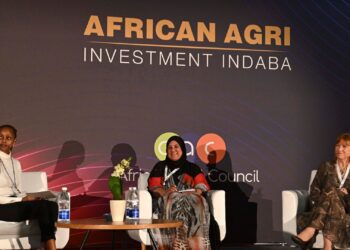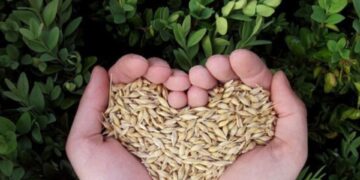
The triple burden of malnutrition has cast a long shadow on children and their futures, robbing them of health and wellbeing, condemning them to continued ill-health whilst undermining their chances to learn, to earn and to escape poverty.

Tackling poverty and inequality in South Africa requires urgent intervention now more than ever, said guest speakers at the recent virtual launch of the 2020 Child Gauge.
The 15th instalment of the annual report published by the University of Cape Town’s Children’s Institute (CI) was welcomed by launch speakers including first lady Dr Tshepo Motsepe, UCT vice-chancellor Prof. Professor Mamokgethi Phakeng, adv. Tseliso Thipanyane from the human rights commission of South Africa, and Muriel Mafico from UNICEF.
Motsepe took the reigns as keynote speaker of the virtual event and agreed that the crisis of hunger was, “A slow violence against our children.”
Also read: Malnutrition ‘a silent war without weapons’
Motsepe added, “We cannot thrive as a country when our children are shackled to a life of hunger and malnutrition.”
The first lady noted that she had hopes government would take into consideration the findings of the yearly report as the D-day for the national budget vote draws closer.
“We need our ministers responsible for the food and nutrition security of our country to uphold the commitments in our Constitution.
“We need to strengthen the food safety nets for children including our National School Nutrition Programme, and the early child development subsidy, our campaigns for exclusive breastfeeding, our programmes of food fortification and food supplementation, and our social protection policies. And we need these to be effectively implemented and adequately resourced,” she said.
This 15th annual review of the situation of the country’s children is published by the Children’s Institute in partnership with UNICEF South Africa; the DSI-NRF Centre for Excellence in Human Development, University of the Witwatersrand; the Standard Bank Tutuwa Community Foundation; and the DG Murray Trust.
Black women, the face of poverty
The theme of the 2020 Child Gauge issue “Food and nutrition security” placed the lens on the slow violence of child malnutrition and identified critical points for intervention.
Child experts in their respective fields of study in medicine and social advocacy called for urgent, early and sustained investment in order to reduce the burden of stunting, obesity and non-communicable diseases; improve children’s health, education and employment prospects; and drive national development.

The annual report also revealed nearly 27% of the country’s children were severely stunted and showed no prospect of reaching their full potential.
This was however not a new revelation, said deputy dean in the UCT faculty of health sciences, Dr Tracey Naledi.
Naledi focused on health equity and food injustice, noting, “Under-nutrition and stunting has remained the same in South Africa over the last 20 years at a very high prevalence of 27% in 2016.
The crisis of hunger has been around long before Covid-19, as black women have long borne the brunt of poverty, positioning them as the face of poverty and hunger in South Africa, Naledi said.
“Much of women’s work is unpaid, further entrenching poverty in women (and) poor nutrition in mothers that impact child nutrition and health. This was all before Covid-19. (Now) the situation is even worse trapping even more women and children in poverty and hunger,” she noted.
Incomes have remained stagnant while food prices soar. More and more households are struggling to feed themselves and have instead turned to sugary snacks and unhealthy foods as a way out.
Also read: Fix broken food system to address child stunting
Naledi said that it was concerning how these foods were being marketed to children who have limited knowledge of better choices and include breakfast cereals, biscuits and processed meats. “What is even more stressing is that one in about four children under two years old already consume these unhealthy, sugary foods.
“The obesity and this persistent stunting is influenced by the global and local increase in the consumption of ultra-processed foods that are highly refined and high in sugar, unhealthy fats and salts. They are also low in fibre and micronutrients and contain additives to extend their shelf life, (and are) modified in colour, flavour and texture. They are specifically formulated to taste lovely and are habit forming, leading to excessive consumption and rapid weight gain,” said Naledi.
Virus grows, gaps are widening
As the virus persists around the globe, food and nutritional security have become a topical issue that are only going to get worse before it gets better, said deputy representative of UNICEF, Muriel Mafico.

Mafico highlighted that South Africa had long experienced the triple burden of malnutrition – undernutrition, obesity and micro-nutrient deficiency – before Covid-19. “What Covid has done is to simply magnify and amplify the vulnerabilities that already existed.
“At the height of lockdown in 2020, we all witnessed the long queues of desperate families waiting to receive their much-needed food parcels. The closure of schools also disrupted school feeding programmes which are a vital safety net for millions of children.
“Globally Covid-19 is expected to increase the risk of all forms of malnutrition and this also holds true for South Africa. Our response to the Covid-19 pandemic must catalyse accelerated progress and narrow inequalities so that no child is left behind,” Mafico explained.
Also read: National task force proposed to curb child stunting
















